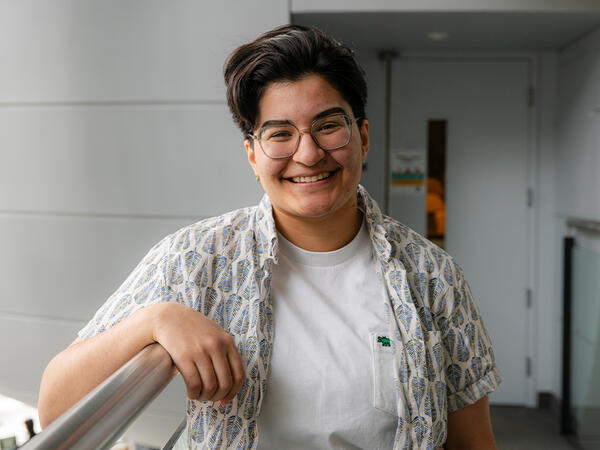
Course Overview
In collaboration with GeriMedRisk, this course is designed to equip pharmacists with advanced knowledge and skills in geriatric pharmacotherapy, enabling them to provide specialized care for older adults. Other healthcare providers involved in the medication management of older adults may also find this course beneficial. With the aging population, there's a growing need for healthcare professionals who understand the unique pharmacological considerations and challenges faced by older adults. This micro-credential focuses on evidence-based practices, medication management, interprofessional collaboration, and patient-centered care in the context of geriatrics.
Learning Objectives
By the end of the course, participants should be able to:
1. Explain geriatric pharmacotherapy principles
- Describe the pharmacokinetic and pharmacodynamic changes associated with aging.
- Identify common geriatric syndromes and their implications on pharmacotherapy.
2. Apply evidence-based practices in geriatric medication management
- Utilize current evidence-based guidelines to optimize pharmacotherapy in elderly patients.
- Analyze and evaluate the appropriateness of prescribed medications considering potential polypharmacy, adverse effects, and age-related physiological changes.
3. Develop patient-centered care plans
- Design individualized pharmacotherapy plans that consider patient preferences, comorbidities, and functional status.
- Effectively communicate medication management plans to elderly patients and their families, emphasizing safety and adherence.
4. Collaborate with interprofessional teams in geriatric care
- Demonstrate effective collaboration and communication with an interprofessional team, including physicians, nurses, social workers, and caregivers, to enhance patient outcomes.
- Recognize the roles and contributions of various healthcare providers in geriatric care and integrate their insights into patient care.
5. Address Ethical and Cultural Considerations in Geriatric Care
- Explore the role of the pharmacist in interprofessional geriatric care teams.
- Discuss collaborative practice agreements and team-based care models.
- Identify effective communication and coordination strategies among healthcare providers involved in geriatric care.
Competencies
Participants completing this course should demonstrate the following competencies:
1. Knowledge of Geriatric Pharmacotherapy
- Competence of age-specific pharmacological principles and common geriatric conditions.
- Proficiency in evaluating and adjusting medication regimens for elderly patients, minimizing risks associated with polypharmacy.
2. Evidence-Based Medication Management
- Critically appraise and apply clinical guidelines specific to geriatric pharmacotherapy.
- Skill in deprescribing and managing drug interactions to improve medication safety in older adults.
3. Patient-Centered Communication
- Competence in engaging elderly patients and caregivers in discussions about medication regimens and potential side effects.
- Tailor communication strategies to the cognitive, sensory, and cultural needs of older adults.
4. Interprofessional Collaboration
- Integrate insights from various professionals to enhance patient-centered geriatric care.
5. Ethical Decision-Making and Social Challenges
- Skill in identifying and navigating ethical issues specific to the older adult population.
- Sensitivity to individual differences, adapting care approaches to align with patient values and preferences.
Who should take this course?
Pharmacists seeking to enhance their foundational knowledge in geriatric pharmacotherapy, including those working in community pharmacies, hospitals, long-term care facilities, and other healthcare settings where they provide care for older adult patients. Other healthcare providers involved in the medication management of older adults may also find this course beneficial.
Instructors
Image

Karen Cameron
Assistant Professor Teaching Stream, Leslie Dan Faculty of Pharmacy
Image

Jennifer Tung
Founding Team Member, GeriMedRisk
More News
Image

Faces of PharmSci: Mahya Rezaeifarimani
Supervised by Prof. Shirley Wu, PhD student Mahya Rezaeifarimani is developing smart nanoparticles to help make radiation therapy work better for brain tumours by targeting low-oxygen areas that often make treatment less effective.
Read More
Image

Dean Lisa Dolovich reappointed for second term
Professor Lisa Dolovich has been reappointed for a second term as Dean of the Leslie Dan Faculty of Pharmacy, University of Toronto, effective July 1, 2025, to December 30, 2030.
Read More
Image

Pharmacy Summer Camp gives high school students insight into pharmacy profession
A new summer camp based at the faculty will give high school students a range of experiences in pharmacy and pharmaceutical sciences.
Read More